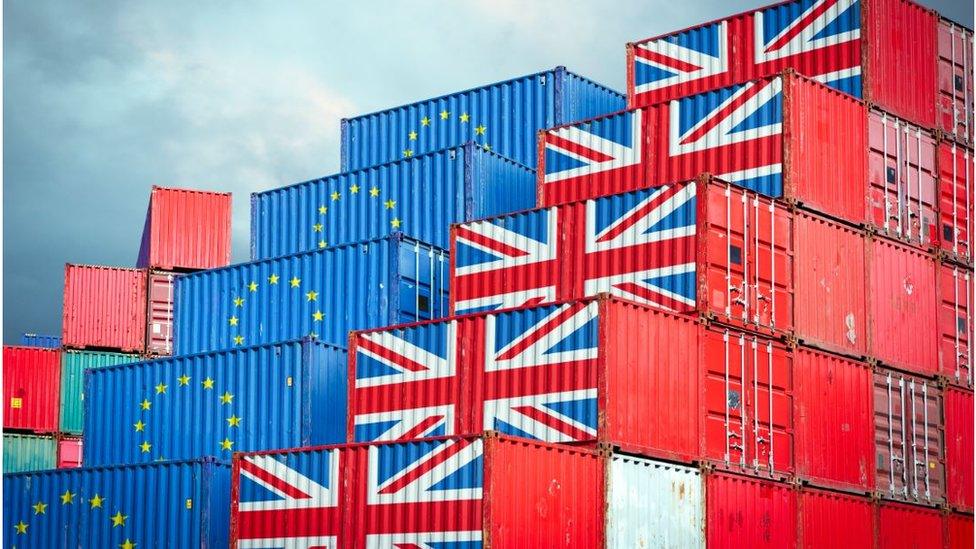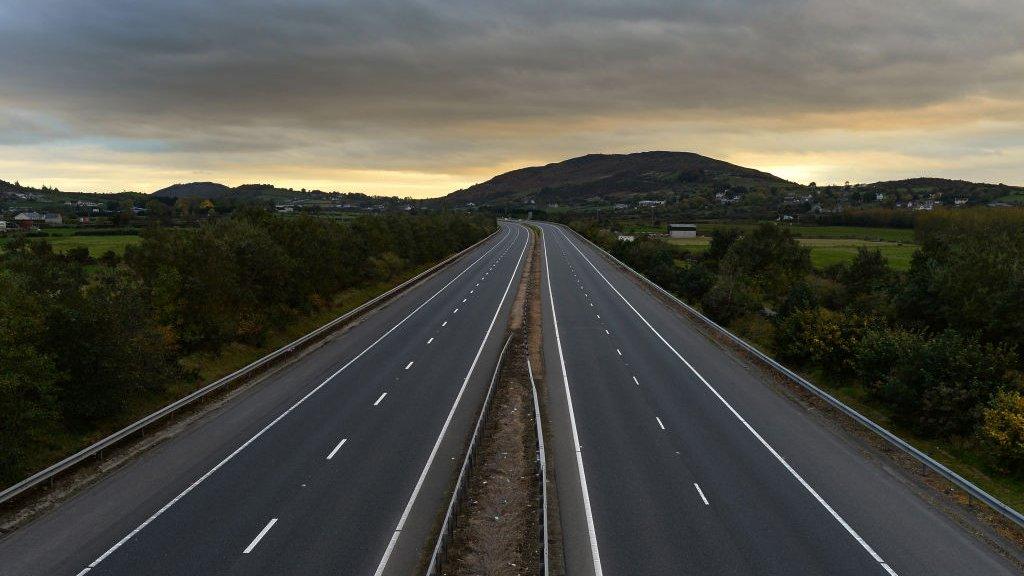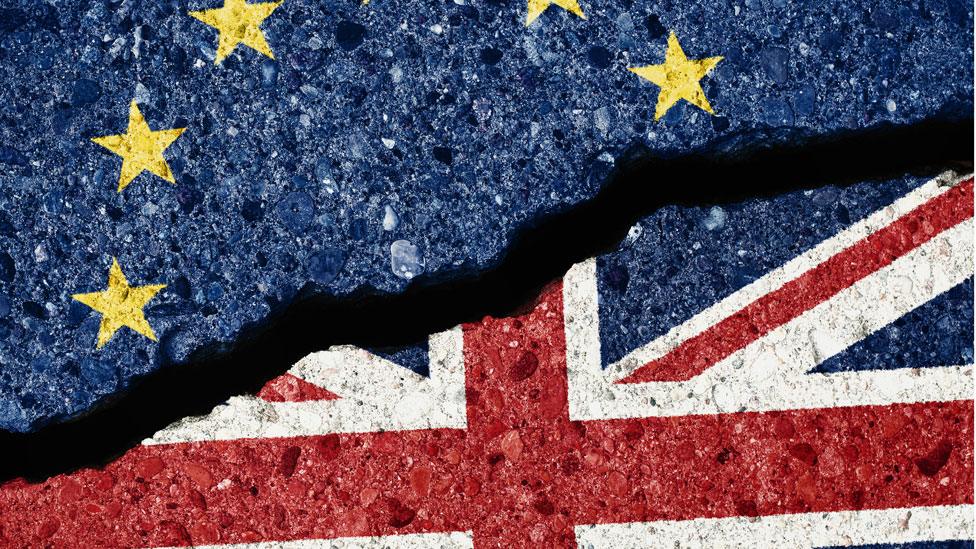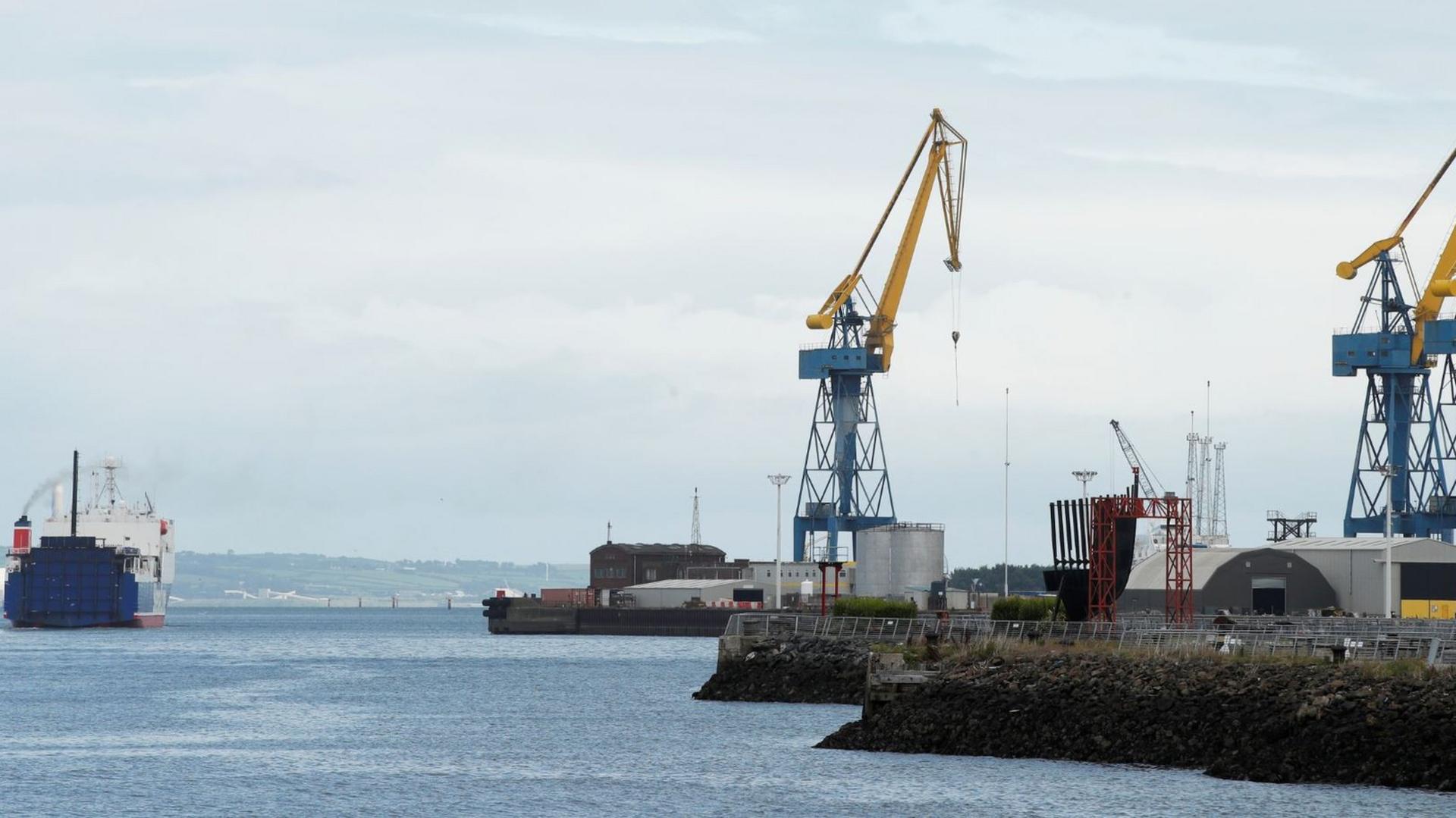Brexit: Tariffs on 60% of goods entering NI from GB
- Published

A trade expert has suggested more than 60% of goods entering Northern Ireland from Great Britain could be subject to tariffs under the Brexit deal.
Northern Ireland would remain part of the UK's customs territory under the deal.
But goods entering Northern Ireland from Great Britain and deemed at risk of being moved to the Republic of Ireland would be subject to EU tariffs.
The tariff could be rebated if it can be shown the goods were consumed in NI.
Goods from non-EU countries will also be subject to the same process.
Prof Alan Winters, the director of the UK Trade Policy Observatory, prepared an analysis of the deal as part of ongoing litigation taken by anti-Brexit campaigners.
The campaigners, led by barrister Jo Maugham QC, argued that the deal contravened legislation preventing Northern Ireland forming part of a separate customs territory to Great Britain.
Prof Winters' analysis concludes that, when considering both Great Britain and international goods, a total of 75% of Northern Ireland's imports could be subject to EU tariffs on arrival.
He reached that conclusion by analysing official data on Northern Ireland's trade flows.
Prof Winter cautions that trade between Great Britain and Northern Ireland is not subject to precise statistical monitoring so the analysis relies on a number of approximations and estimates.
He added that the deal is likely to lead to Northern Irish firms reorientating supply chains away from Great Britain in favour of the Republic of Ireland.
A UK and EU joint committee will assess what goods are deemed to be "at risk" and therefore subject to tariffs.
Prof Winters says that the EU is likely to take a cautious approach and he assumes that almost all "intermediate" goods, such as raw materials and components, moving from Great Britain to Northern Ireland would be subject to tariffs.
He is also sceptical about the operation of a rebate system, particularly for intermediate goods.
He said such goods "may go through several stages of processing before finally leaving Northern Ireland for the EU".
"Proving that they will never do so is basically impossible so each stage of processing seems likely to have to keep records in order to reclaim tariffs paid when the final sale in Northern Ireland is made," he added.
A large part of the tariff issue could be eliminated if the UK and the EU can agree a zero-tariff trade deal covering all goods.
However it would not be eliminated entirely if the UK and the EU had different tariff polices with third countries.
A zero-tariff deal would also not eliminate the need for new customs processes, such as making declarations for all shipments of commercial goods from Great Britain to Northern Ireland.
- Published21 October 2019

- Published22 October 2019

- Published22 October 2019
